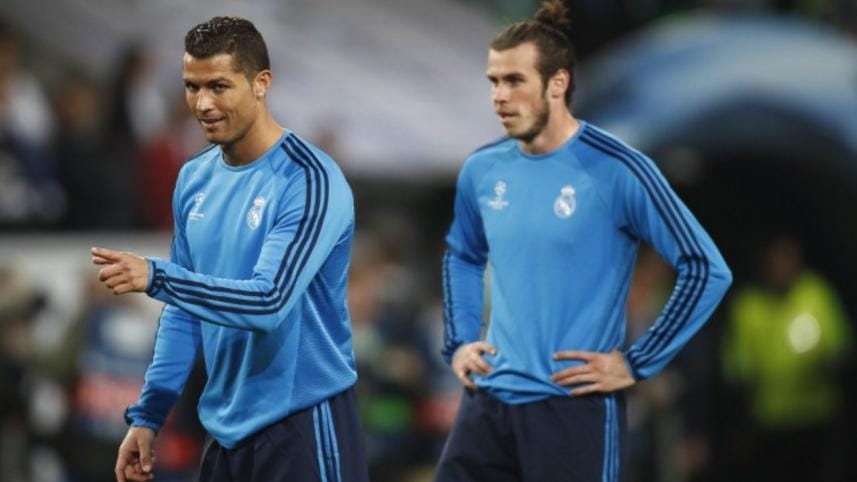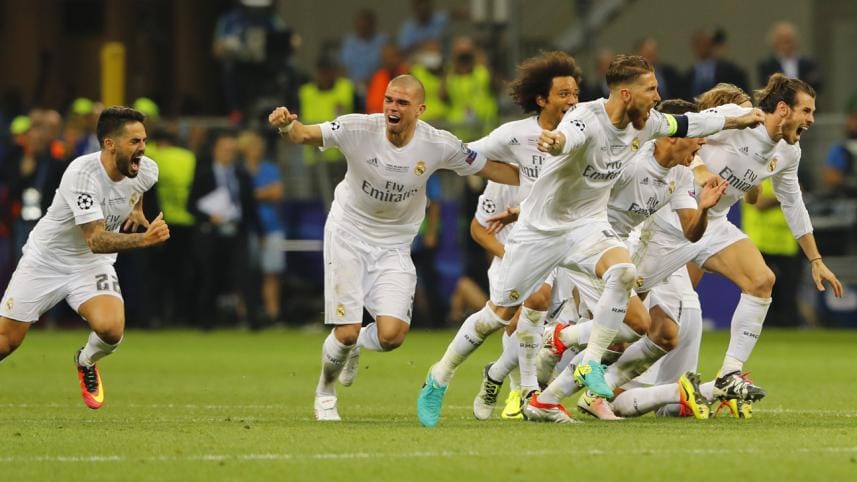Has Bale replaced Ronaldo as Real’s leader?

Whose team is Real Madrid's now: Cristiano Ronaldo or Gareth Bale?
At the beginning of last season, this question was not relevant. Ronaldo was the man. He had just finished one of his most impressive 12-month period even by his own high standards.
His 48 goals in La Liga and 10 more in the Champions League somehow helped to mask a disappointing season in the trophies department, but no doubt proved that he was the player to go to when the squad needed to score.
Ronaldo was Real Madrid's main offensive outlet, their biggest attacking threat, the forward that should be taken care of with a constant supply of through balls, crosses and assists.
At that same point in time, Bale's fans could feel slightly disappointed. After a debut season that had seen him score in two finals and look like a legitimate heir to Ronaldo's throne, a lack of consistency and physical issues led him to lose some of his swagger within the squad in his second year with Real Madrid.
Those circumstances have indeed changed now. For starters, Ronaldo might have understood that, at age 31 and with over 800 matches played for club and country, it might be sensible to slow down a bit. The Portuguese star finished last season running on fumes, and his obsession with playing every single match of the season looks like one of the reasons behind his physical exhaustion and his muscular injuries.
[twitter]
Team circuit.. Balance work ⚖ pic.twitter.com/g1WqndNPgQ
Gareth Bale (@GarethBale11) September 7, 2016
[/twitter]
The respect Ronaldo -- and the rest of the squad for that matter -- show towards Zinedine Zidane has obviously made him reflect about the need to rest during the season. A good example is the agreement they have reached for Ronaldo to come back from his injury gradually, hopefully a sign of things to come during the rest of the season. In attacking terms, the squad is deep enough so that the Portuguese striker can take things more calmly, aiming to be in top form when May comes.
Things have changed on Bale's end as well. His numbers from last season look misleading, as he played less La Liga matches than he did in the previous one (23 vs. 31). However, he scored more (19 goals vs. 13), and especially led the team in the squad's final title charge in April, when Ronaldo picked up an injury and could only come back to play and score four times in the final two matches of the season.
Two April matches showed Bale's increased control and importance in the team. The 3-2 win in Vallecas against Rayo Vallecano, after coming back from 2-0 down, demonstrated that the Welshman knew how to play with those around him when required, but could also take the responsibility on his shoulders if needed.
On the following weekend, and for the second match in a row, he scored an 81st-minute winner, in this case against Real Sociedad in San Sebastian.
Those matches showcased not only that the current squad can live and win games without Ronaldo, but also that Bale can become the main offensive reference without having to play in a free role behind a main striker. The Welshman exploited the wings to create scoring chances for himself and others as well.
But the question regarding whose team this is becomes relevant when both players are on the pitch. Last season also gave us a hint of how the 2016-17 campaign should unfold. Ronaldo's evolution from almost a winger toward a finishing machine closer to goal is well documented, and only became more evident as the season went along.
When midfielders such as Toni Kroos and Luka Modric can't combine with Karim Benzema to break up defences with their passing skills and find Ronaldo in scoring positions, Real Madrid's best option is Bale's individual ability to take on defenders and create advantage on the flanks.
That's something Ronaldo used to do way more often than he does now.
As years go by and the 27-year-old Bale seems to approach his peak form by making the most of his talent and showing a better understanding of the game, Ronaldo looks progressively more focused on finishing plays, rather than initiating them.
That is obviously an evolution, and we'll see a mixture of offensive alternatives in the next few months. Although it's hard to say whether or not Bale will take over Ronaldo in terms of offensive importance to the team, the trend points towards that transition starting at the very least.
If Bale can stay healthy for most of this season, the team should reward him with plenty of the ball. It will be up to him to show how far he can really go.




Comments